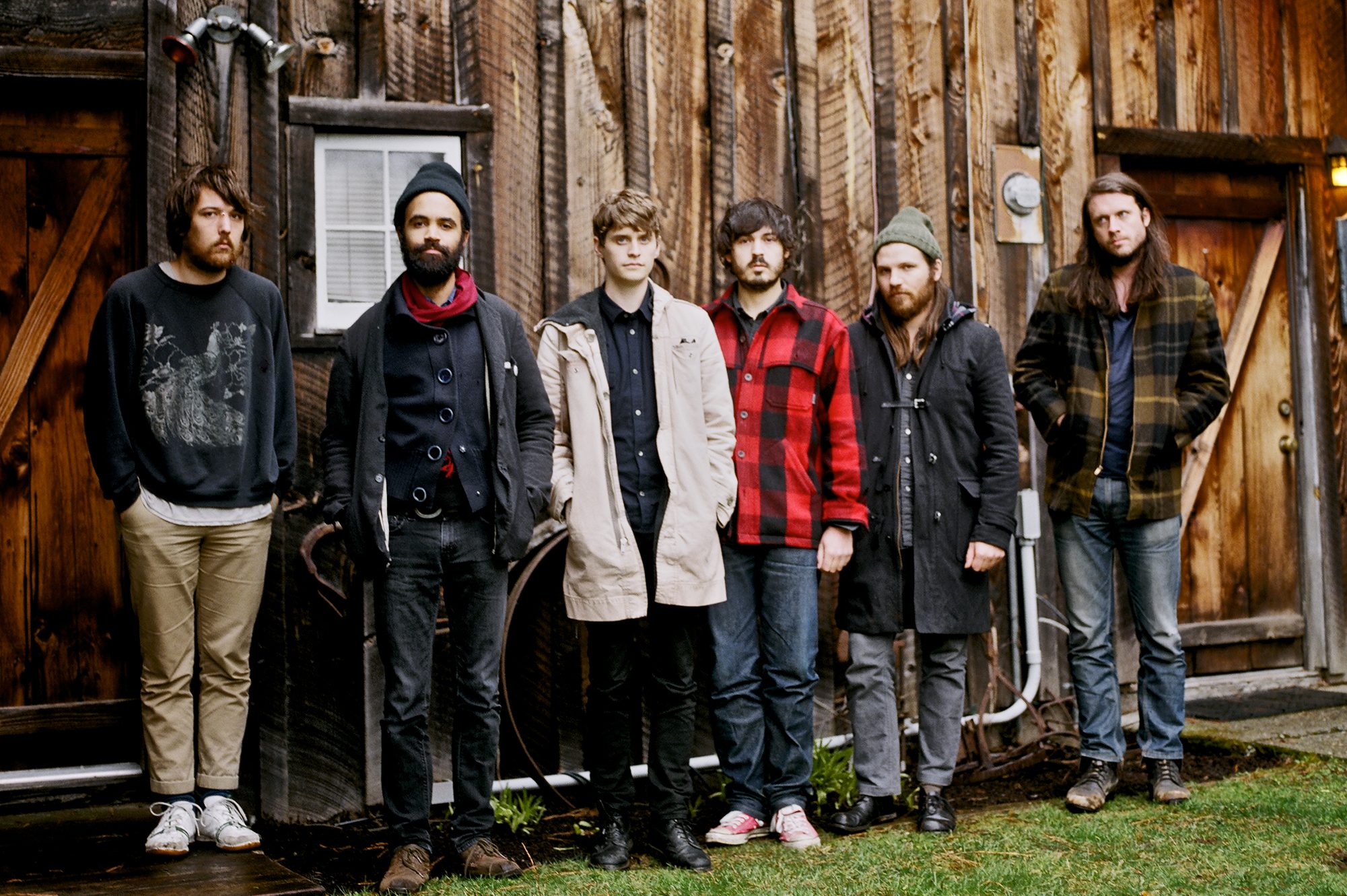Ten years on from its release, we revisit Fleet Foxes’ seminal sophomore album.
What makes an album great? Some point to a cohesiveness, others a sense of innovation. Some argue for epochal turning points: there was a time before Blonde on Blonde, and a time after it.
But my answer lies elsewhere, and touches on what makes any piece of art worthwhile. In its apparent specificity, it reveals more general, more rewarding multitudes.
Helplessness Blues, which turned ten in May, is ostensibly an album about Robin Pecknold, the lead songwriter, singer, and guitarist behind Fleet Foxes which, as with Tame Impala, is increasingly being seen as the work of an individual mind rather than a collective.
Keep up with the latest music interviews, news and reviews here.
The content of their albums post 2008’s Fleet Foxes, informs that perception: reflections upon moments of personal heartbreak, clarity, escape, and self-division. Of the lyrics in Helplessness Blues, Pecknold said he wished to make them “more realistic” than the oblique, impersonal, pastoral poetry of Fleet Foxes.
The main character of the album, categorised as a “wide-eyed walker”, may initially be construed as symbolic. A naïve, romantic, sophomoric everyman; a solipsistic youth, the sort we’ve all met before.
Yet as the narrative broadens and deepens, encompassing self-division (“I walk with others in me, yearning to get out”), resentment (“Now I can see how we were like dust on the window”), meaninglessness (“Why in the night sky are the lights hung?”), and indefatigable self-belief (“All these voices I’ll someday have turned off”), the protagonist takes a shape that is unmistakably Pecknold’s own.
But the magic of the album, putting aside its almost overwhelming beauty, is that something about his struggle connects with our own. Here I’m talking about people my age or thereabouts, people over 15 and under 35, people who have grown up in a world where helplessness blues are the only songs we have left to sing.
Ian Cohen of Pitchfork agrees, writing in his review of 2017’s Crack-Up: “Helplessness Blues remains one of the decade’s most resonant expressions of millennial tension, years before ‘millennial’ became an oppressive buzzword.”
What “millennial tension” refers to also applies to Gen Z, specifically a feeling of futility in pitting our desire for optimism and self-realisation against a world which holds such values beneath its boot.
“After all is said and done, I feel the same,” Pecknold sings on ‘Someone You’d Admire’, “All that I hoped would change within me stayed”.
‘Battery Kinzie’ opens with a powerful burst of piano, electric guitar and thumping drums: “I woke up one morning, all my fingers rotting/I woke up a dying man without a chance”. In that moment, we are all him, the dying man who woke up without a chance.
There is also a deep desire amongst us to find meaning, or rather, immortality in our relationship to the natural world. The popularity of astrology and the trend towards non-urban living attest to deep dissatisfaction with our estrangement from nature.
The Fleet Foxes discography remains a powerful remedy against such disconnect, and listening to ‘Ragged Wood’, ‘Maestranza’ or ‘Drops in the River’ while on a nature walk is an incomparably exquisite dual-pleasure, sort of like doing nangs while having your feet massaged.
Throughout Helplessness Blues, Pecknold invokes natural imagery in that same idyllic vein, yet roots it not in abstract hope but thwarted, specific desire. There is a dual aspect at play, an understanding of the illusory desire a return to nature represents for many of us, while acknowledging its implacable strength.
‘The Cascades’ represents this paradox: shifting minor and major chords, a dizzying array of instrumentation, and sublime moments of crystal clarity, invoking the danger which lurks within nature’s glory.
Indeed, the sense of duality is reflected in the music itself, where lyrical doubt is counterpoised with ageless and transcendent instrumental choices. Its characteristic harmonies (masterminded not by Pecknold but by pianist Casey Wescott) are buttressed by the timeless sounds of guitars (both six- and 12-string), mandolin, and even Tibetan singing bowls.
The opening to ‘The Plains/Bitter Dancer’, or the elegiac hymnal moans of ‘Montezuma’, become moments of an almost hypnotic, incantatory quality, made more beguiling by the great rushes of sound which follow them. The result is that, despite being released at the zenith of the indie folk revival, the album remains to this day sonically fresh, lively, and difficult to pin down.
Then there’s the title track, an eye-widening piece of music. Is this the greatest song Pecknold’s ever written? It’s certainly the most poignant.
I challenge anyone born after 1989 to not recognise something of themselves in its world-weary, adamantine idealism. Guitars thrum fervently, the harmonies soar, and hints of Graham Nash and Neil Young peek through as Pecknold croons, “But now after some thinking/I’d say I’d rather be/A functioning cog in some great machinery/Serving something beyond me”.
“What’s my name, what’s my station?” the singer asks, “What good is it?” All questions we ask ourselves still, in the face of modern-day meaninglessness. And yet he strives to overcome. “If I had an orchard,” he dreams, invoking, in a soaring instrumental moment of glorious wistfulness, the sort of pastoral idyll for which many of us dream.
In other albums, Pecknold’s relationship to this quixotic ideal vary. On Crack-Up the consolations of the pastoral setting remain dubious, and the focus isn’t on the landscape so much as on the human figure standing before it.
Shore is a purer piece of nature revelry, and the songwriting is sunnier, livelier, and less academic than Crack-Up as a result.
Of course, the obsession with nature, and humanity’s standing within it, follows on from a certain desire to disappear which, like many of us still do now, Pecknold felt concertedly while writing Helplessness Blues.
Consequently, the instrumentals shimmer with musical mystique, with strange and oscillating sounds, a flute, a dulcimer, a steel music box, an harmonium, a fiddle.
‘Sim Sala Bim’, a song quite literally about a man stealing away into the night, is a more overt reference to this desire. It’s worth mentioning that, following the album tour, Pecknold indeed disappeared for a while, shaving his beard, moving to New York, and forgetting about music for five or so years.
But the album, along with Pecknold’s own exultant return to music, amounts to a rebuke to such defeatist conclusions.
Helplessness, it argues, is our condition; we are either consumed by it, or we grow to transcend it. 21st century life is replete with the feeling that it’s all too much, that our disenfranchisement cripples us, that the splendour of the natural world evades our grasp, and that our lives lack meaning.
Believe it, if you want. I’m siding with Pecknold, the wide-eyed walker, who dreams of being “old as the mountains”. As it stands, it’s about as much as we can do.







